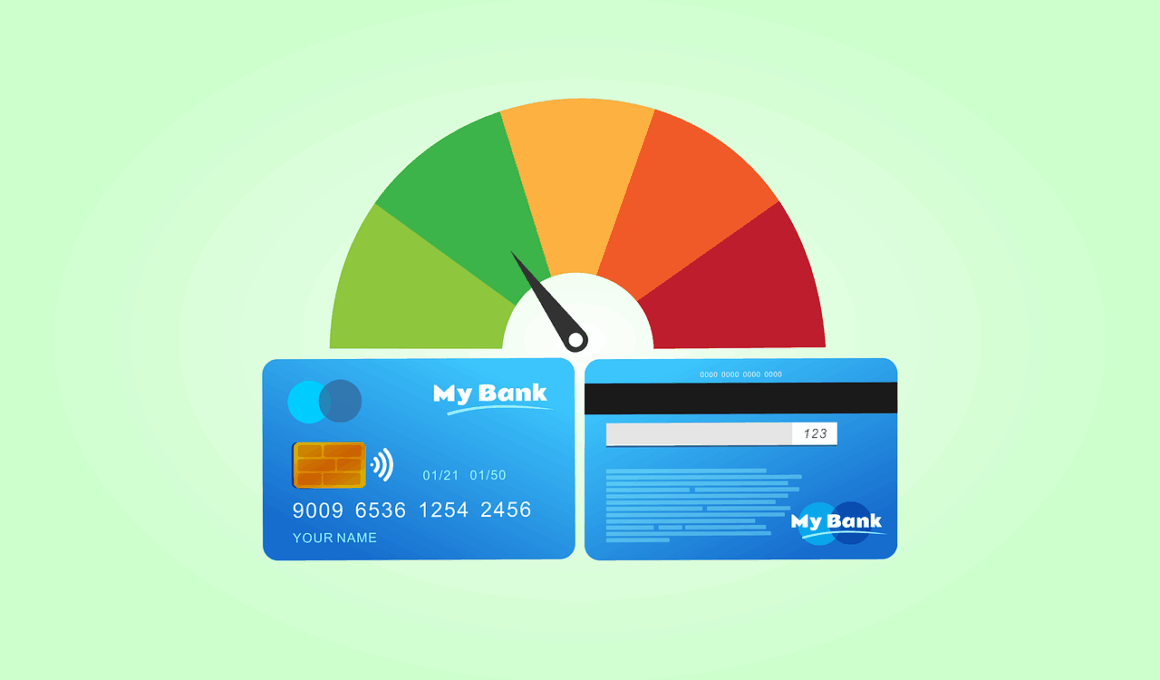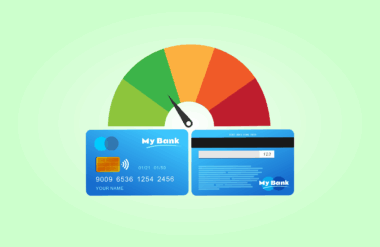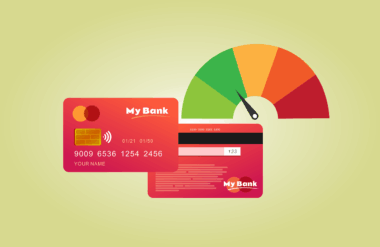How Emotional Spending Affects Credit Recovery Efforts
In today’s consumer-driven society, emotional spending has increasingly become a significant challenge for individuals seeking to recover their credit scores. The impulse to make purchases based on emotions rather than needs can lead to a cycle of debt, adversely affecting one’s credit standing. Many consumers struggle with distinguishing between genuine desires and impulsive emotional reactions that drive them to shop. This compulsive behavior can be triggered by stress, anxiety, or even moments of happiness. It is essential to recognize the signs of emotional spending before it spirals out of control. Individuals should engage in budget planning and track expenditures to mitigate impact. Developing strong financial habits is also crucial, which involves reframing how we perceive the role of spending in our lives. Education and self-awareness can help individuals identify unhealthy spending patterns. Implementing targeted financial recovery strategies can greatly benefit those affected by emotional spending, ultimately leading to lasting improvements in credit scores. Seeking guidance from financial advisors may provide additional support in managing finances effectively. Thus, understanding the emotional factors behind spending habits is essential in enhancing credit recovery efforts.
Emotional spending often leads individuals into deeper financial difficulties that prolong the credit recovery process. Recognizing the psychological factors contributing to emotional purchasing behaviors is essential. Many people find themselves swayed by feelings of inadequacy or loneliness, leading to unhealthy relationships with money. When spending is tied to emotional states, it compromises responsible financial management. Consequently, establishing effective coping strategies can help break the cycle of emotional spending. Developing alternative behaviors, such as engaging in physical activities or practicing mindfulness, can redirect focus from shopping to more fulfilling pursuits. Furthermore, journaling to track emotions can reveal triggers and help create awareness. Identifying these spending habits is vital for those recovering their credit. Seeking emotional support through counseling or support groups can significantly influence one’s ability to change these behaviors. Developing a more positive relationship with money requires commitment and perseverance. Acknowledging emotions associated with spending can empower individuals to make more deliberate decisions. Support from family and friends can aid in reinforcing healthy spending practices. Financial education can provide valuable insights into the importance of budgeting and saving, establishing a strong foundation for credit recovery.
The Role of Marketing in Emotional Spending
Marketing strategies today often capitalize on consumers’ emotions to drive sales, contributing significantly to emotional spending. Brands employ techniques designed to evoke feelings that directly influence purchasing behavior. Advertising often portrays idealized lifestyles, amplifying desires and creating dissatisfaction with one’s current situation. Recognizing these manipulative tactics is crucial for consumers striving for financial recovery. Industries leverage social media and influencers to market products, making individuals feel compelled to purchase items they may not need. Understanding that these marketing strategies are crafted to exploit emotions can help consumers become more discerning shoppers. Building awareness around advertising tactics enables better decision-making when it comes to spending. Instead of being swayed by emotional impulses, individuals can prioritize financial health by making informed choices. Analyzing marketing messages critically fosters stronger financial discipline. Evaluating needs versus wants is essential in combating impulsive emotional spending. Consumers should focus on aligning purchases with their financial goals and learning how to resist urges fueled by advertising. Ultimately, breaking free from emotional spending requires intentional efforts and education regarding consumer behavior and marketing influences.
Furthermore, tracking emotional spending habits can provide valuable insights into personal patterns, aiding credit recovery efforts. Maintaining a spending journal allows individuals to document purchases alongside emotional states at the time of buying. By doing so, they can identify significant triggers leading to impulsive purchases. Establishing a clear understanding of personal spending patterns is a crucial step toward developing healthier financial habits. This review process can reveal consistent themes regarding emotional reactions and spending choices. Adjusting to new strategies may involve implementing a waiting period before making non-essential purchases. Setting a 24-hour rule gives individuals time to evaluate whether making a purchase is necessary. Creating a supportive environment that encourages accountability among friends or family can also help in adhering to budget plans. They can provide reminders of credit goals while managing spending impulses. Moreover, exploring alternative, enjoyable activities can substitute for shopping when emotional distress arises. This holistic approach helps in addressing emotional factors influencing spending while effectively contributing to credit recovery and improving overall financial health. This insightful analysis underlines the importance of understanding personal emotional triggers as a step toward making more informed spending decisions.
Financial Education and Emotional Resilience
Improving financial literacy is crucial for individuals battling the effects of emotional spending on credit recovery. Education empowers consumers to make sound financial choices that prioritize credit health. Understanding financial concepts such as budgeting, saving, and interest rates can empower individuals to manage their resources effectively. This knowledge acts as a buffer against emotional purchasing triggers. With the right information, individuals can develop resilience in the face of emotional spending impulses. By learning about the long-term consequences of impulsive purchases, consumers can act more strategically in their financial decisions. Additionally, awareness of credit scores and their importance can motivate individuals to keep their spending in check. This educational focus fosters stronger personal finance habits, ultimately leading to effective credit recovery. Building an environment that encourages financial discussions among peers can reinforce these concepts. Workshops and seminars on personal finance can provide a valuable platform for sharing knowledge. Establishing a supportive community can facilitate learning and encourage accountability. Furthermore, leveraging technology and applications designed to manage finances can enable users to track expenses. Adopting these practices helps integrate stronger financial discipline into daily lives, improving overall credit health.
Lastly, creating a sustainable plan for maintaining emotional health can significantly impact credit recovery outcomes. Seeking professional help in identifying underlying emotional issues often helps break the cycle of compulsive spending. Therapists can help individuals develop coping mechanisms and strategies for managing emotional triggers related to finance. Activities such as meditation, yoga, or deep-breathing exercises can promote mental well-being and put emotional triggers into perspective. This shift in focus can help prevent impulsive decisions that jeopardize credit scores. Building positive relationships with money also plays a vital role in fostering healthy spending habits. Educating oneself about responsible use of credit encourages better financial decisions. Fostering gratitude for what you have can reduce the desire to purchase items based on fleeting emotions. Practicing conscious spending habits means aligning purchases with individual values rather than impulsive emotions. Implementing these strategies creates a sustainable and healthy approach to finances. Additionally, regularly checking credit scores can reinforce accountability. Committing to improvements in mental and financial well-being uplifts individuals on their journeys toward financial recovery.
Conclusion: Empowering Credit Recovery
In conclusion, emotional spending presents significant challenges for those seeking to recover their credit scores. Awareness of triggers and understanding marketing influences provide crucial insights for consumers aiming to break the cycle of impulse purchases. Implementing effective strategies such as tracking expenses, journaling emotions related to spending, and prioritizing financial education can empower individuals on their credit recovery paths. Being proactive about emotional health, seeking professional support, and adopting mindful spending practices are essential steps towards sustainable financial well-being. Building emotional resilience fosters better relationships with money and creates lasting positive change. Ultimately, adopting a holistic approach towards financial health combines improved emotional well-being with informed financial management. Investing effort into recognizing and transforming unhealthy habits will lead to credit recovery success. Remember that small changes result in significant improvements over time, and resilience is essential for overcoming challenges. Seeking guidance and support throughout the journey reinforces accountability and success in restoring credit scores. Emotional spending may initially seem insurmountable, yet with dedication and the right strategies, it can be managed effectively.





